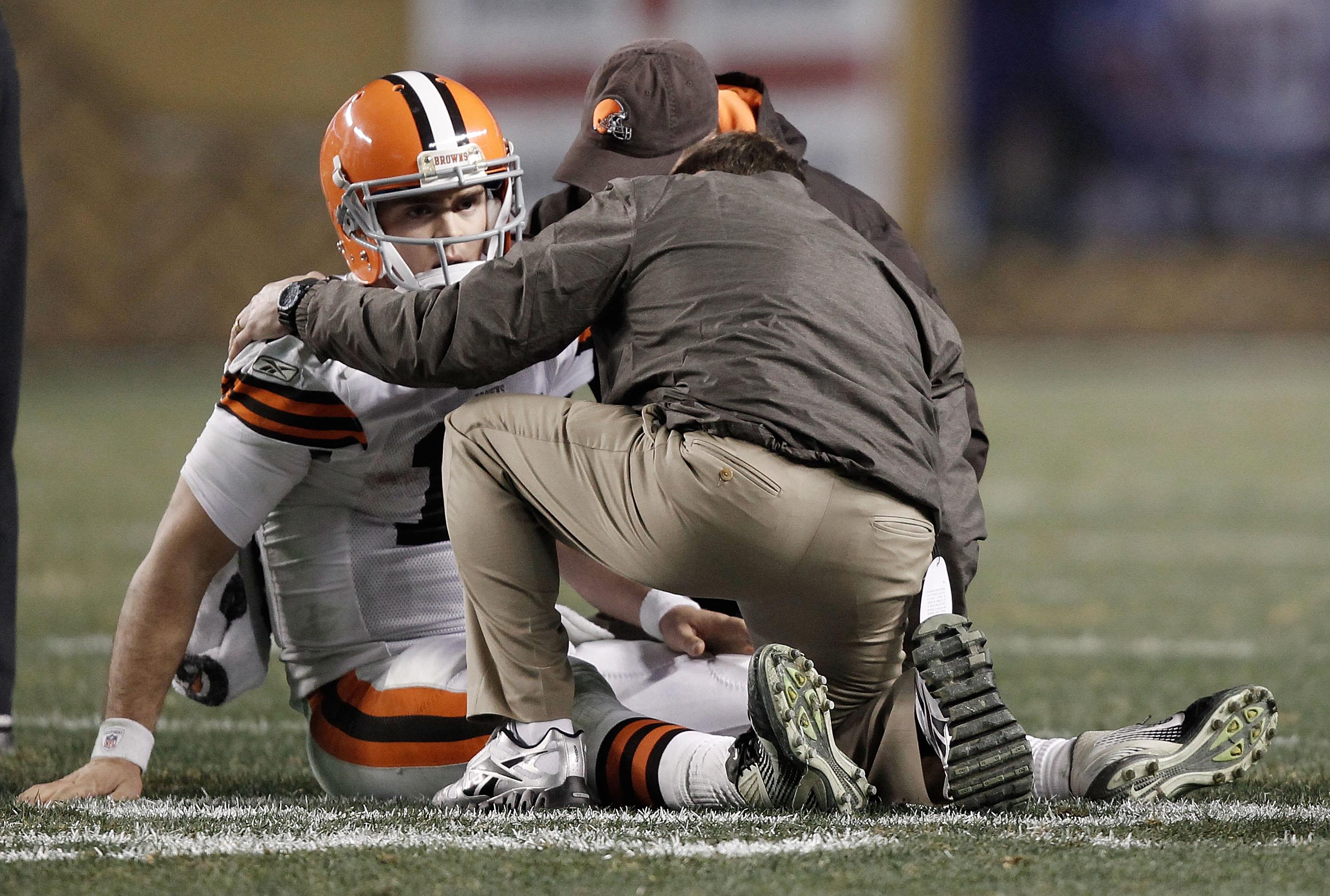You’re exactly right, Tom. I like the idea of the One. Things look much different from that angle. Our perspective is skewed without it. But it’s inevitable. Football games are subject to the excesses of the medium. Television distorts the game. It changes how we play it. And it changes how we consume it. The feats of athleticism are amazing to watch, but even more so on a replay. The more we watch the same play, the clearer it becomes, until we are comfortable judging the intentions of the men involved.
But all they are trying to do is hit the other guy. That’s it. Not in the head. Not anywhere specifically. Just hit him, hard. And while there may be time to weigh the punitive risks of a headshot while cocking the hammer, when it comes time to shoot, there are no thoughts. Just pull the trigger.
You said that James Harrison was sloppy at best for not knowing that McCoy had released the ball. Why was it sloppy? Because you knew he’d thrown it? These are things we assume, after seeing the replay, must have been completely obvious to the guys involved. If I can see it from here on my couch, well then of course James saw it. He’s dirty and he’s a liar. But what if he’s being honest?
If you’ve ever been in a fight you’ll know that it’s a blur. Time starts to do weird things. You don’t know how long the fight lasts, and, after your adrenaline drops, you can’t accurately describe what happened. Every football play, especially under the bright lights of the NFL, summons this same kind of response. Every play requires the nitro button. Every play is an out-of-body experience. To ask a man to contain this burst, to tame it, to control it with any kind of accuracy in the chaos of the moment, is futile. And in truth, the player who takes these concerns to heart and learns to pull back and dial down his explosive instincts will be cut as soon as his coaches turn on the film and see it.
As long as people tune in every weekend, the game will continue exactly as it is. And that’s fine. The players don’t care. They like it the way it is. They don’t want any rules to change. The fans’ crisis over football is personal. Some of us feel guilty about our interest in the game because we know what we’re watching. The best athletes in the world are crippling each other for our entertainment.
And again, that’s all fine. They choose to do it. But the game will die unless there is health care reform from within, because fines and suspensions won’t do a thing. As it stands, a team’s medical staff is a part of that team. The goal is to win. How do you win? You play your best guys, even if one of them just got knocked woozy. Like Colt McCoy. The call for an independent neurologist on the sideline is a healthy start, but I would take it a step further. The entire medical staff should be independent: totally unaffiliated with the team. That goes for day-to-day treatment of injuries as well as game-day treatment. A trainer or a doctor can’t act in the best interest of the individual with the team’s goals hanging over his head.
It’s hard to blame any one person for mishandling an injury when everybody’s incentives line up to do just that. “We need him out there,” says the look from the coach to the trainer. “I’m good, let me get out there,” says the player to the trainer. Dilated pupils, disoriented, dizzy. But he says he’s OK. He knows where he is. He knows what day it is. And damn it we have to win this thing. OK, get in there. We’ll keep an eye on him.
But then the trainer has 10 other injured players to tend to. You can’t keep a damn eye on him. And the player’s adrenaline is shooting through the roof. He can’t keep an eye on himself. The only eye that might be trusted on the sideline is the eye of a doctor who doesn’t give a shit about the coach or the team. But then, how do you find that guy? Does he exist? And will he be able to follow protocol under abnormal circumstances?
Because not only has the player’s fight response kicked in, so has the coach’s. So has the trainer’s. And so has the doctor’s, independent or otherwise. There is an energy down on the field that doesn’t transfer to the television screen. The urgency of that moment sweeps up everyone in its delusion and infects even the most rational thinkers. How does a man diagnose another man’s injury when neither of them is thinking rationally? How can I tell you where it hurts if I don’t feel any pain?
And this is where we run into a wall with our sober analysis. The men we are watching on the field are out of their minds. We can’t control them from up here. We can’t see what they see. And we can’t get a good explanation for it afterward.
It’s a snow globe. We can’t get in. All we can do is watch the globe get shaken up and enjoy the storm.
